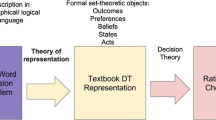Abstract
The second decade of the Generalized System of Preferences (GSP) ends in 1980. Should it be continued for another, third decade and if so, what changes sould be made? Can the present Uruguay Round of GATT negotiations be used to effect improvements in the GSP?
Similar content being viewed by others
References
R. J. Langhammer and A. Sapir: Economic Impact of Generalized Tariff Preferences, Aldershot 1987.
Op. cit. R. J. Langhammer and A. Sapir: Economic Impact of Generalized Tariff Preferences, Aldershot 1987, p. 69.
M. Wolf: Differential and more favourable treatment of developing countries and the international trade system, in: The World Bank Economic Review, Vol. 1, Sept. 1987, p. 657.
G. Karsenty and S. Laird: The GSP, policy options, and the New Round, in: Weltwirtschaftliches Archiv, Vol. 123 (1987), pp. 262–296.
Cf. in particular A. Borrmann, C. Borrmann, C. Langer, K.-W. Menck: The Significance of the EEC’s Generalized System of Preferences, Hamburg 1985; A. Borrmann: The Significance of the EEC’s Generalized System of Preferences, in: INTERECONOMICS, Vol. 21, 1986, No. 1: U. Möbius: Wie wirksam sind die Allgemeinen Zollpräferenzen der EG für Industrieprodukte?, in: DIW-Wochenbericht, 10/1986; R. J. Langhammer and A. Sapir. op. cit.: Economic Impact of Generalized Tariff Preferences, Aldershot 1987. chapter 3.
G. Karsenty and S. Laird, op. cit. The GSP, policy options, and the New Round, in: Weltwirtschaftliches Archiv, Vol. 123 (1987), p. 286.
OECD: The Generalised System of Preferences, Paris 1983, p. 25.
Cf. e.g. UNIDO: Industry in the 1980s. Structural Change and Interdependence, New York 1985, pp. 93–104.
Cf. UNCTAD Trade and Development Board: Decision 75 (S-IV) of 13th October 1970, UNCTAD-Doc. TD/B/332, New York 1970.
Cf. A. Borrmann et al., op. cit. The Significance of the EEC’s Generalized System of Preferences, Hamburg 1985; pp. 310–311.
Cf. R. J. Langhammer: Die Allgemeinen Zollpräferenzen der Europäischen Gemeinschaft für Entwicklungsländer—Fehlschlag oder Erfolg?, Kieler Diskussionsbeiträge, Nov. 1983, p. 19.
Cf. GATT Mid-term Review: Final Agreement at Geneva, GATT Newsletter 61, May 1989, p. 2.
Cf. S. Hirsch: Rich man’s, poor man’s, and everyman’s goods, Kieler Studien No, 148, Kiel 1977, pp. 118, 120. For an interesting example see UNCTAD: International trade in the petrochemical sector: Implications for developing countries, Geneva 1985, para. 78.
H.-R. Hemmer: Wirtschaftsprobleme der Entwicklungsländer, 2nd ed., Munich 1988, pp. 761–762. Cf. also A. Cairncross et al.: Protectionism, The impact on developing countries, Report by a group of experts to the Commonwealth Secretariat, London 1982, paragraphs 3.51 and 3.52.
Zollstruktur und Effektivzölle nach der Tokio-Runde, inquiry of the Institute for Economic Policy at the University of Cologne, Cologne 1984, p. 63.
Cf. e.g. R. Pomfret: The theory of preferential trading arrangements, in: Weltwirtschaftliches Archiv, Vol. 122, 1986, p. 439.
J. Viner: The Customs Union Issue, New York 1950, p. 44.
R. J. Langhammer and A. Sapir. op. cit. R. J. Langhammer and A. Sapir: Economic Impact of Generalized Tariff Preferences, Aldershot 1987. p. 30.
G. Karsenty and S. Laird, op. cit. The GSP, policy options, and the New Round, in: Weltwirtschaftliches Archiv, Vol. 123 (1987), p. 9; D. G. Beckmann: A note on estimating the static effects of the GSP, in: Weltwirtschaftliches Archiv, Vol. 124, 1988, p. 566; R. J. Langhammer and A. Sapir, op. cit. The GSP, policy options, and the New Round, in: Weltwirtschaftliches Archiv, Vol. 123 (1987), pp. 30–39.
Cf. H.-R. Hemmer, op. cit. Wirtschaftsprobleme der Entwicklungsländer, 2nd ed., Munich 1988. p. 767. See also OECD: The Generalised System of Preferences—Review of the First Decade, Paris 1983, p. 9.
This point is put quite drastically by M. Wolf, op. cit. Differential and more favourable treatment of developing countries and the international trade system, in: The World Bank Economic Review, Vol. 1, Sept. 1987, p. 657. According to him GSP was invented to compensate for the uncompetitiveness of developing countries caused by their inward-looking trade policies (p. 655).
Cf. OECD: World Economic Interdependence and the Evolving North-South Relationship, Paris 1983, p. 10.
Cf. e.g. Final Act of UNCTAD VII, United Nations, New York 1987.
Cf. for example: World Bank: World Development Report 1987, Chapter 5; Balassa: Inward-oriented Strategies, in: G. M. Meier (ed.): Leading Issues in Economic Development, 4th ed., New York & Oxford 1984, pp. 516–521.
M. Wolf, op. cit. Differential and more favourable treatment of developing countries and the international trade system, in: The World Bank Economic Review, Vol. 1, Sept. 1987, p. 649.
Cf. B. Balassa, op. cit. Inward-oriented Strategies, in: G. M. Meier (ed.): Leading Issues in Economic Development, 4th ed., New York & Oxford 1984, p. 517.
M. Wolf, op. cit. Differential and more favourable treatment of developing countries and the international trade system, in: The World Bank Economic Review, Vol. 1, Sept. 1987. p. 650.
The case for (limited) tariff protection in certain cases by low-income countries has been made by H. Dehn: External Orientation and Domestic Market Promotion, in: INTERECONOMICS, Vol. 23, No. 2, March–April 1988, p. 73.
Cf. S. J. Anjaria: Balance of Payments and Related Issues in the Uruguay Round of Trade Negotiations. in: The World Bank Economic Review, Vol. 1, Sept. 1987, pp. 669–688.
S. J. Anjaria, op. cit. Balance of Payments and Related Issues in the Uruguay Round of Trade Negotiations, in: The World Bank Economic Review, Vol. 1, Sept. 1987, p. 681.
Author information
Authors and Affiliations
Additional information
The opinions expressed in the article are those of the author. Thanks go to E. A. Höring and Dr. R. Adlung for valuable remarks.
Rights and permissions
About this article
Cite this article
Siebeke, R. Is the GSP antiquated?. Intereconomics 24, 298–302 (1989). https://doi.org/10.1007/BF02924738
Issue Date:
DOI: https://doi.org/10.1007/BF02924738



